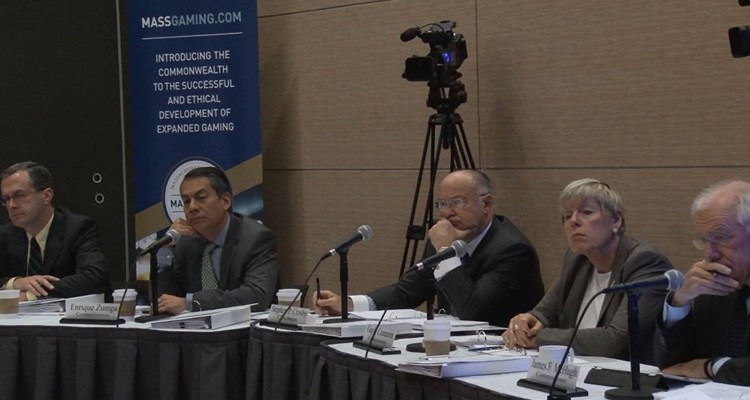On Thursday, MGM Resorts International was given the green light by the Massachusetts Gaming Commission to begin early demolition and construction work on its proposed $950 million MGM Springfield casino.
MGM Resorts International’s project was one of three proposals for the Western Massachusetts casino license. In June 2014 the MGM Springfield officially received its license, and more than a year later in August, the Gaming Commission voted to allow the casino to open in September 2018.
Since October the company has made significant changes to its proposal, including changing the casino’s 25-story hotel tower to a six-story low rise, moving an apartment complex from a 14-acre site to a different downtown location, increasing the cost by $150 million form $800 million, and reducing the overall square footage of the project by 122, 534 square feet to a total of 759,157 square feet.
A future meeting and vote of the five-member Gaming Commission will determine the outcome of the proposed design changes. Thursday’s vote will serve as the springboard for the environmental regulatory process which enables the MGM Springfield to begin work on the casino site. Stephen Crosby, chairman of the Gaming Commission said that the board “can always change our minds,” and “If an issue comes up in the design that we think is a material change that we have a problem with, we can raise that,” according to MassLive.
Included in Resort’s project is the redevelopment and new construction of existing buildings in Springfield. They include “extensive landscaping” and “construction of a new storm water management system.” Among the buildings expected to be demolished is the Howard St. Primary School, which was damaged in a 2011 tornado and a boarding house on Bliss St. The original plan would have meant the demolition of the United Electric Building, which is listed on the National Register of Historic Places. Based on the project’s impact, eight cities and towns, including Chicopee and Holyoke, and Agawam, East Longmeadow, Longmeadow, Ludlow, West Springfield and Wilbraham, are among those eligible for mitigation.
Before the vote, Gaming Commissioner and former city councilor Bruce Stebbins expressed concern over traffic issues as well as the potential for job losses, which was mentioned in a memo from Toronto-based HLT Advisory, Inc. outside consultants to the Gaming Commission. HLT’s analysis flagged the planned payroll decrease of $6 million to $124 million resulting from MGM eliminating hotel café space and switching from a buffet to a food court. Overall, the memo dated December 15 from HLT Advisory Inc. managing directors Lyle Hall and Robert Scarpelli said, “HLT does not anticipate these changes will have a material impact on the appeal of the proposed casino to the gaming customer. The majority of design changes are in non-consumer facing space and should not have a negative impact on gaming operations.”
The Gaming Commission began Thursday’s open meeting with a discussion regarding an update on the casino license for the Region C casino license and the tribal compact for the Mashpee Wampanoag Indian Tribe and Mass Gaming and Entertainment’s $677 million casino in Brockton. The U.S. Department of the Interior approved land into trust applications for the transfer of approximately 151 acres of land in East Taunton and 170 acres in Mashpee for the tribe back in September.


